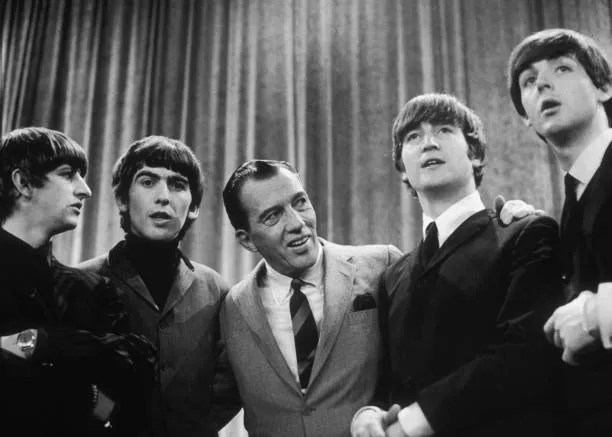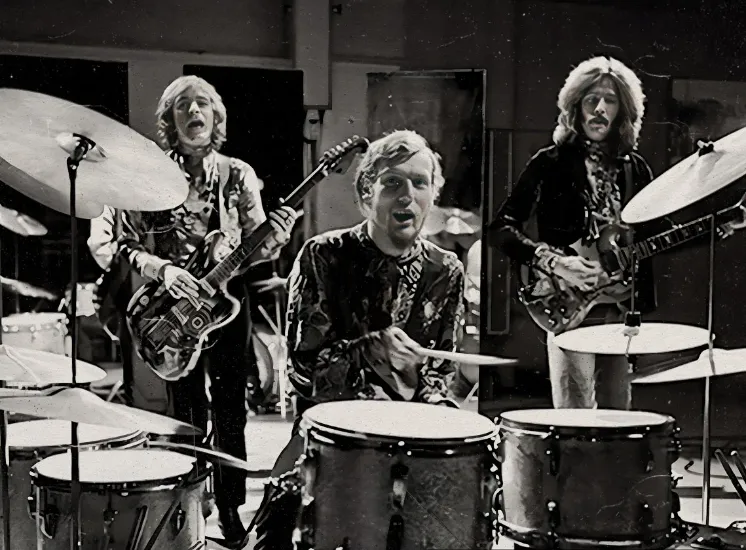The Beatles, often heralded as the greatest band in the history of popular music, owe part of their unparalleled success to a unique structural dynamic.
Unlike many of their contemporaries, The Beatles never had one definitive lead singer.
This seemingly unconventional approach allowed the band to leverage the distinct vocal talents of John Lennon, Paul McCartney, and occasionally George Harrison and Ringo Starr, creating a diverse and dynamic auditory experience.
This strategy not only set them apart from other bands but also played a crucial role in their widespread appeal and enduring legacy.
The Evolution of The Beatles' Vocal Style

The early days of The Beatles saw John Lennon and Paul McCartney taking on the lion’s share of the vocal duties.
These two musical powerhouses, whose songwriting partnership became legendary, complemented each other’s voices in remarkable ways.
Lennon brought a raw, edgy quality to the songs, with a hint of rebelliousness. His voice carried an emotional intensity that instantly captivated listeners.
On the other hand, McCartney’s voice was versatile and melodic, with a polished and versatile range that could adapt to various musical styles.
From the rock ‘n’ roll roots evinced in early songs like "Love Me Do" and "Please Please Me" to the more complex arrangements in tracks like "A Day in the Life" and "Hey Jude," the vocal interplay between Lennon and McCartney was instrumental in The Beatles' evolving sound.
Their ability to switch leads, harmonize seamlessly, and blend their distinct vocal tones added layers of depth and intrigue to their music.
Lennon and McCartney: An Unmatched Vocal Duo

One of the most significant elements of The Beatles' success was the contrasting yet complementary vocal styles of John Lennon and Paul McCartney.
Lennon’s voice often carried a nasal, raspy edge, which added a sense of urgency and authenticity to tracks like "Twist and Shout" and "Strawberry Fields Forever."
His vocal delivery was raw and unfiltered, which resonated deeply with the band's fans, communicating the raw emotions and complexities of their lyrics.
Conversely, McCartney’s voice offered a smoother, more melodic counterpart. His vocal versatility was on full display in songs such as "Yesterday" and "Let It Be."
Whether belting out rock anthems or gently crooning ballads, McCartney’s voice provided balance and harmony, completing the duo’s vocal dynamic.
Together, their voices could convey a wide range of emotions, from joy and excitement to introspection and melancholy.
The George Harrison Factor
Although often overshadowed by the prolific Lennon-McCartney partnership, George Harrison’s contributions as a vocalist should not be overlooked.
Harrison’s vocal moments, while less frequent, were nonetheless integral to The Beatles’ sound. His distinct, slightly nasal voice provided an additional layer of texture.
Songs like "Here Comes the Sun" and "Something" showcased Harrison’s ability to craft and deliver emotionally resonant lyrics with a sincerity that stood out.
His voice added a reflective and often spiritual dimension to the band’s repertoire.
Ringo Starr: The Underestimated Vocalist
Ringo Starr, primarily known for his drumming, also contributed to the unique vocal palette of The Beatles.
While Ringo might not have had the vocal prowess of his bandmates, his performances exuded an undeniable charm and character.
His most notable vocal contributions, such as "Yellow Submarine" and "With a Little Help from My Friends," played to his strengths and added a whimsical, often light-hearted element to The Beatles’ albums.
Ringo's endearing, everyman vocal style gave some of their tracks an accessibility and fun, further broadening the band’s appeal.
The Vocal Harmonies: The Beatles' Secret Weapon
One of the defining features of The Beatles’ music is their sophisticated use of vocal harmonies.
The voices of Lennon, McCartney, Harrison, and Starr blended in ways that were sonically enriching and inventive.
This technique of layering voices created a fuller, richer sound that became a hallmark of their music. Tracks such as "Because," "If I Fell," and "This Boy" are perfect examples of their harmony-driven approach.
The Beatles pushed the boundaries of vocal harmony, often employing complex arrangements that drew from genres as diverse as classical, doo-wop, and traditional folk.
Their intricate use of harmony not only showcased their individual vocal talents but also underscored their ability to work as a cohesive unit.
The Influence of Shared Lead Vocals

The decision to share lead vocal duties among the band members had a profound influence on the dynamics and creative output of The Beatles.
This shared approach fostered a collaborative environment where each member felt valued and had a voice.
It allowed The Beatles to explore a broader range of musical styles and themes, appealing to a diverse audience.
From the hard-hitting, rock-infused "Revolution" led by Lennon to the uplifting and soulful "Let It Be" led by McCartney, the symphony of The Beatles' voices provided variety and kept their albums engaging.
Moreover, the occasional lead vocals by Harrison and Starr added an element of surprise and freshness to their music.
The Legacy of The Beatles' Vocal Arrangements
Decades after their breakup, The Beatles’ music continues to inspire and influence musicians around the world.
The shared vocal approach that defined their sound is now seen as a pioneering move that set the stage for many bands that followed.
By not confining themselves to a single lead vocalist, The Beatles demonstrated the power of musical collaboration and the importance of each band member's contribution.
Their approach created a blueprint for how bands could diversify their sound and make the most of the individual strengths of each member.
This flexibility contributed to their legendary status and enduring relevance in the music industry.
The Beatles' decision to forego a single lead vocalist was a stroke of genius that contributed significantly to their unprecedented success.
The vocal talents of John Lennon, Paul McCartney, George Harrison, and Ringo Starr, both individually and collectively, created a rich, diverse soundscape that captivated millions.
This dynamic approach allowed The Beatles to explore a vast array of musical styles and emotional depths, ensuring their place in the annals of music history.
Their legacy as a band without one lead singer who instead leveraged the varied talents of each member continues to set them apart.
The Beatles' vocal arrangements remain a testament to their innovative spirit and collaborative ethos, factors that remain crucial to their lasting appeal.



